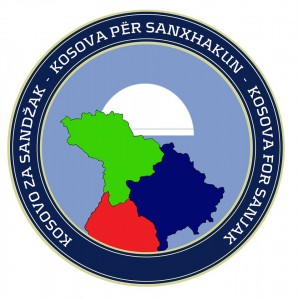This analysis considers the representation of the history of Kosovo – from ancient times to today – in the textbooks of the primary schools and high schools of Kosovo, Albania, Serbia, Montenegro and Macedonia. The textbooks used to compile this report are those of the publishing houses Libri Shkollor (Prishtina), Albas (Tirana), Zavod za Udžbenike (Belgrade), the Unit for textbooks and learning materials (Podgorica) and Prosvetno Dello and Tabernakul (Skopje).
http://kfos.org/wp-content/uploads/2016/12/Historia_e_Kosoves_SHG_ENG.pdf
The history textbooks of these five countries, approved by their respective ministries of education, served as the main sources for the report. The descriptions in these historiographical texts are compared, and their similarities and differences identified. International authors such as Noel Malcolm, Oliver Schmitt, Peter Bartl, and Stephen Schwartz, who have covered the developments and events in Kosovo in a range of periods, are juxtaposed with relevant information. The report deals with the most important periods of Kosovo’s history, drawing attention to the discrepancies between the historical accounts in question, as well as to the respective falsifications of each party. In an indirect way the report also reveals what kind of relations with their neighbours the governments of each of the countries is suggesting to the younger generation who are being educated with these textbooks. The report aims to reveal, in a way that is as clear and evidence-based as possible, the basis for the often competing claims between the peoples who come up against one another in Kosovo, and for this reason it is being published in Albanian, Serbian and English. 7 This report is aimed at the authors of school history textbooks from Kosovo, Albania, Serbia, Montenegro and Macedonia and then to the representatives of the respective ministries of education who give permission for the textbooks’ publication, but also to policymakers and to primary and high school history teachers themselves. It will also be useful for anyone who is interested in the issues dealt with here. Finally I want to thank all those who have contributed to this report in different ways and at different times. Most importantly, the donors: the Embassy of the Netherlands and particularly Ambassador Robert Bosch, the Embassy of Switzerland and the Kosovo Foundation for Open Society (KFOS) and particularly Luan Shllaku. Heartfelt thanks also to the Georg Eckert Institute in Germany and particularly to Claudia Lichnofsky for their support during my two four-week stays with them. Likewise a wholehearted thankyou to the publisher of this report, the Alter Habitus Institute and especially Eli Gashi. For their comments, advice, suggestions and very useful recommendations I also offer thanks to Albana Rexhepaj, Arbër Vokrri and Armanda Hysa, who bear no responsibility for my mistakes; and also to Gazmend Bërlajolli for the linguistic edit; I thank Elizabeth Gowing for the fluent translation into English and Anton Berishaj for doing the same in Serbian; for design and typesetting I thank Rrota, and in particular the designers Arbër Matoshi and Ardian Veliu.
